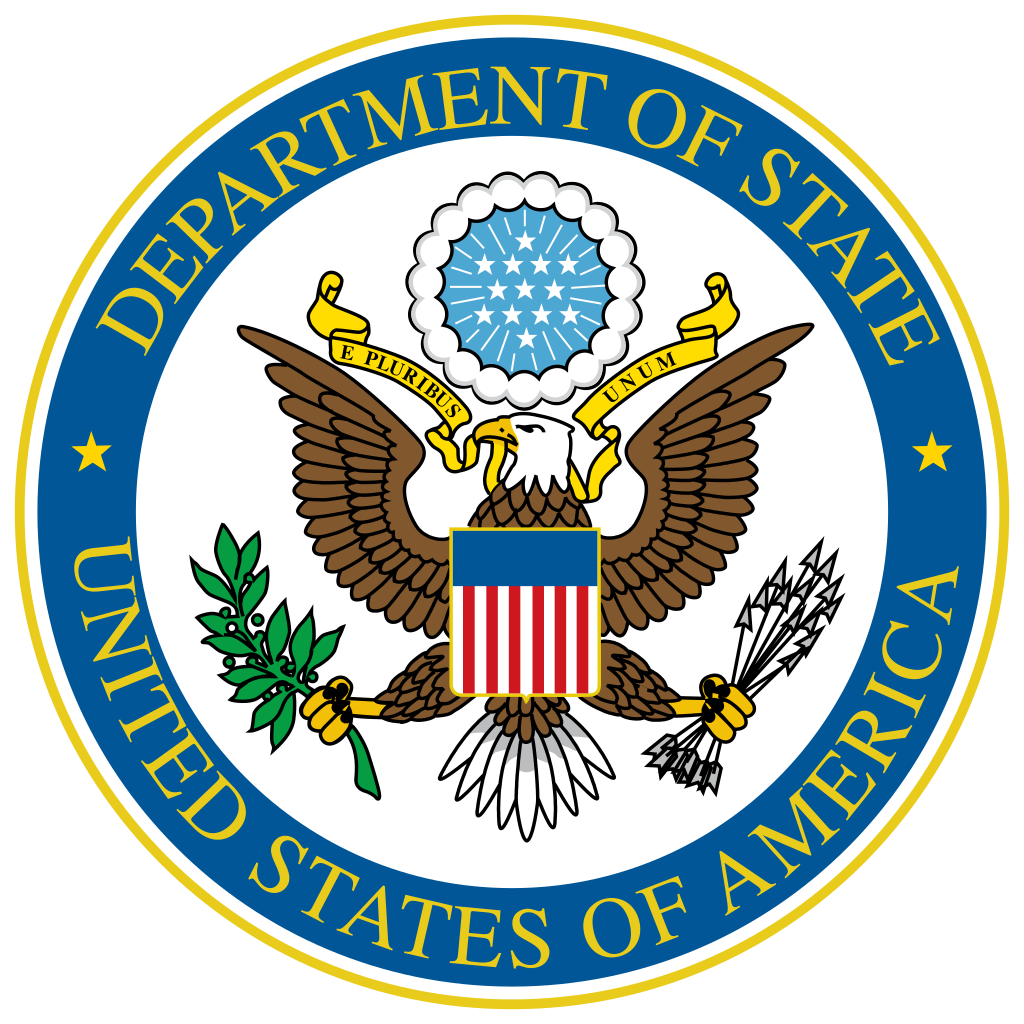Featured Galleries USUBC COLLECTION OF OVER 160 UKRAINE HISTORIC NEWS PHOTOGRAPHS 1918-1997
 Holodomor Posters
Holodomor Posters

TRAVEL ADVISORY - UKRAINE
 U.S. DEPARTMENT OF STATE
U.S. DEPARTMENT OF STATE
 U.S. DEPARTMENT OF STATE
U.S. DEPARTMENT OF STATEWashington, D.C., Sunday, January 23, 2022
Do not travel to Ukraine due to the increased threats of Russian military action and COVID-19. Exercise increased caution in Ukraine due to crime and civil unrest. Some areas have increased risk. Read the entire Travel Advisory.
Country Summary:
On January 23, 2022, the Department of State authorized the voluntary departure of U.S. direct hire employees (USDH) and ordered the departure of eligible family members (EFM) from Embassy Kyiv due to the continued threat of Russian military action. U.S. citizens in Ukraine should consider departing now using commercial or other privately available transportation options.
There are reports Russia is planning significant military action against Ukraine. The security conditions, particularly along Ukraine’s borders, in Russia-occupied Crimea, and in Russia-controlled eastern Ukraine, are unpredictable and can deteriorate with little notice. Demonstrations, which have turned violent at times, regularly occur throughout Ukraine, including in Kyiv.
U.S. citizens in Ukraine should be aware that Russian military action anywhere in Ukraine would severely impact the U.S. Embassy’s ability to provide consular services, including assistance to U.S. citizens in departing Ukraine. For more information, please review what the U.S. government can and cannot do to assist you in a crisis overseas.
The Department asks all U.S. citizens in Ukraine to complete an online form so that we may better communicate with you. This is especially important if you plan to remain in Ukraine.
Crimea – Do Not Travel
Russia occupies and has attempted to annex Ukraine’s Crimea peninsula, and there is extensive Russian Federation military presence in Crimea. Occupation authorities continue to abuse and arbitrarily imprison foreigners and the local population, particularly individuals who are seen as opposing Russia’s occupation of the peninsula. The U.S. government prohibits its employees from traveling to Crimea and is unable to provide emergency services to U.S. citizens in Crimea.
Donetsk and Luhansk – Do Not Travel
Russia-led forces control areas of the Donetsk and Luhansk oblasts, where the ongoing armed conflict has resulted in more than 14,000 deaths. Individuals, including U.S. citizens, have been threatened, detained, or kidnapped for hours or days after being stopped at checkpoints controlled by Russia-led forces. The U.S. government restricts USDH from traveling to the eastern parts of the Donetsk and Luhansk oblasts and adjacent regions, which limits the ability to provide emergency services to U.S. citizens in these regions.
Crime targeting foreigners and property is common. Politically targeted assassinations and bombings have also occurred. There are reports of violent attacks on minority groups and police by radical groups.
COVID – Do Not Travel
Visit the Embassy's COVID-19 page for more information on COVID-19 and related restrictions and conditions in Ukraine. Read the Department of State’s COVID-19 page before you plan any international travel.
The Centers for Disease Control and Prevention (CDC) has issued a Level 4 Travel Health Notice for Ukraine, indicating a very high level of COVID-19 in the country. Your risk of contracting COVID-19 and developing severe symptoms is lower if you are fully vaccinated with an FDA authorized vaccine. Before planning any international travel, please review the CDC’s specific recommendations for fully vaccinated and unvaccinated travelers.
The Federal Aviation Administration (FAA) prohibits U.S. civil aviation from flying in the Dnipro (UKDV) Flight Information Region – Ukraine airspace that covers the cities of Donetsk and Luhansk. For more information, U.S. citizens should consult the Federal Aviation Administration’s Prohibitions, Restrictions and Notices.
If you are currently in Ukraine or plan to travel to travel there:
- Read the Department’s country information page:
- Familiarize yourself with information on what the U.S. government can and cannot do to assist you in a crisis overseas.
- Have a contingency plan in place that does not rely on U.S. government assistance. Review the Traveler’s Checklist.
- Visit our website for Travel to High-Risk Areas.
- Monitor local media for breaking events and adjust your contingency plans based on the new information.
- Ensure travel documents are valid and easily accessible.
- See the U.S. Embassy's website regarding COVID-19.
- Visit the CDC’s website on Travel and COVID-19.
- Get a COVID vaccine to facilitate your travel
- Understand the COVID testing and vaccine requirements for all countries that you will transit through to your destination.
- Enroll in the Smart Traveler Enrollment Program (STEP) to receive Alerts and make it easier to locate you in an emergency.
- Follow the Department of State on Facebook and Twitter.
- Review the Crime and Safety Report for Ukraine.
- Avoid demonstrations and crowds.
Last Update: Reissued with updates to the U.S. Embassy operating status and threat level due to Russian aggression.

















